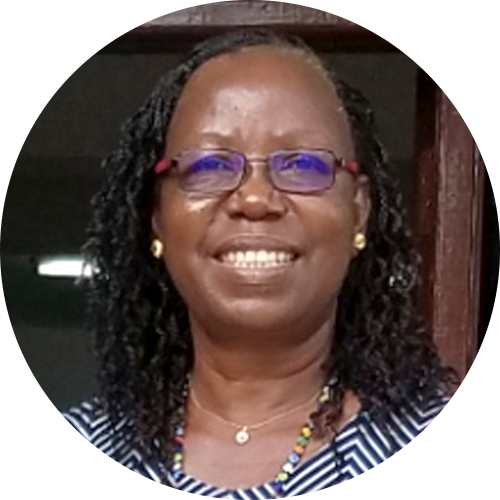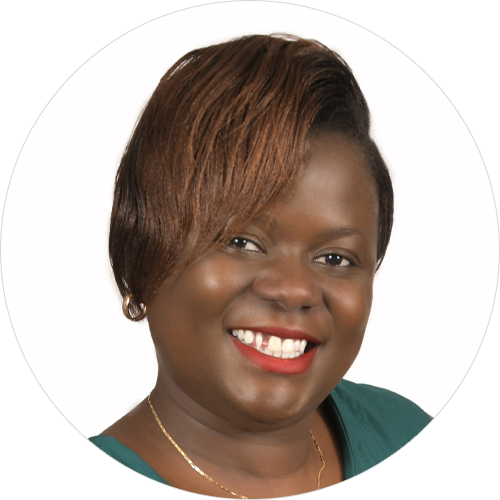Helping providers cope with the devastating impact of COVID-19
Well before the coronavirus crisis hit Kenya, the Ipas Africa Alliance was using the online platform WhatsApp to stay in touch with health professionals who are trained to provide abortion care throughout the country. Now, that communication is more valuable than ever.
As part of its work to ensure that women and girls can still access abortion services during the crisis, Ipas is using WhatsApp to offer abortion providers technical, professional and emotional support. “Providers are worried, they are anxious. The health system simply will not be able to cope if there is an explosion of COVID-19 cases,” says Dr. Ernest Nyamato, director of the alliance.
In addition to sharing information such as COVID-19 guidelines from WHO and the Ministry of Health, Ipas is also helping providers with one of their key requests: more personal protective equipment (PPE) and hand sanitizer. “So far, we have been able fulfill some of these requests and are fast-tracking procurement. But this is going to be challenging, because of price-gouging and escalating prices,” says Nyamato.
In the meantime, Ipas is also tracking reports of an increase in unsafe abortion resulting from women and girls being denied safe abortion care at some facilities. At least five health facilities have now been designated as “COVID-only” facilities, Nyamato says. Ipas is encouraging youth champions of sexual and reproductive health and rights to use social media to alert young people to locations of facilities where abortion and contraceptive care remain available.
Pictured above: A woman walks past graffiti by Anthony Kihoro in Kayole sensitizing people about coronavirus. President Uhuru Kenyatta imposed a dusk-to-dawn 21-day curfew that took effect on Friday, March 26, 2020 in order to curb the spread of COVID-19.
‘We want to bring abortion care to women, rather than having them venture out’
In Kenya, where there are hundreds of confirmed COVID-19 cases and the government has imposed a nighttime curfew and other strict measures, many people are afraid to go to health facilities for fear of being quarantined.
To keep safe abortion care available, the Ipas Africa Alliance is working with partners such as Reproductive Health Network Kenya (RHNK). One way they are tackling this issue is to make sure abortion pills are in stock and available at pharmacies. “We want to bring abortion care to women, rather than having them venture out in ways that may be unsafe because of the virus,” says Dr. Ernest Nyamato, director of Ipas Africa Alliance.
“Many young women, in particular, are now going to pharmacists as their first point of contact for abortion care,” he says, “so we are sending supplies of pills and other abortion-related commodities to pharmacists. We’re trying to help them increase their stock, but it will be difficult, because India is the main source of these pills and there is a transportation lockdown there.”
APRIL 24, 2020

I’m concerned right now that sexual and reproductive health services are being neglected—including the supply of family planning commodities, which will result in unplanned pregnancies and unsafe abortion. We are exploring ways to reach the most women to offer support and correct reproductive health information through our toll-free line and we’re working to offer services remotely, including comprehensive abortion care, through a network of pharmacists linked with referral sites. The COVID -19 pandemic is challenging in many ways, but I think it has presented us with an an opportunity to start thinking of new and different ways of expanding access to abortion care.”
MONICA OGUTTU, founder and executive director of the Kisumu Medical and Education Trust (KMET), which works to promote maternal, child and family health in Kenya and East and Central Africa
Through our network of 587 health providers across Kenya, RHNK is committed to ensuring safe abortion is an essential service during the COVID-19 pandemic. Together with Ipas Africa Alliance and other partners under the She Makes Her Safe Choice programme in Kenya, we are standing up for quality safe abortion information, supplies and services during this public health emergency. We trust in women and youths, and we are doubling our efforts to ensure they have the needed information to make their choice.
Women and girls may be afraid to go to health facilities for fear of the virus, in addition to the fear being of stigmatized for seeking an abortion. Therefore, we are encouraging our providers deliver medical abortion pills directly to the homes of those in need, whenever possible. We also encourage pharmacists to provide abortion pills, along with correct information about their use, to those in need—especially young people who are fearful of going to health clinics at this time. The pharmacists are linked to our network providers in the event referrals are needed for treatment of complications.”
NELLY MUNYASIA, Executive Director, Reproductive Health Network Kenya (RHNK)
APRIL 24, 2020


